The US midterm elections take place on 8 November – so called because they fall in the middle of a four-year presidential term and are widely seen as a test of a president's popularity.
Of course, the president is not on the ballot, as the elections in question are for the US Congress and for various state offices, but their outcome determines how much or how little Joe Biden will be able to accomplish in terms of his legislative agenda over the remaining two years of his term.
All 435 states in the House of Representatives are up for grabs, but because most seats are in safe Republican or Democrat districts, only about 30 of the seats are highly contested.
Opinion polls now are suggesting the Republicans will take back control of the lower house. In which case, Nancy Pelosi, a key Biden ally, will cease to be Speaker of the House, with Republican Kevin McCarthy most likely to succeed her in the role.
US Senators, members of the more powerful upper house, serve a six-year term, with one third of the Senate facing the people at every congressional election.
This year, there are 34 senators facing election (with one other in a sort of "by-election" to fill the remaining four years of a retiring Senator's term).
The Senate races are also pretty much locked in, as just six are rated really contested, meaning they could flip from one party to another.
Those races are in Pennsylvania, Ohio, Nevada, Georgia, Arizona and Michigan. (North Carolina may also be becoming a contested seat). Of the six in play, only Nevada did not flip to Biden in 2020.
The outgoing Senate arithmetic stands at 48 Democrats, 50 Republicans and two independents, who vote with the Democrats. The 50-50 tie is broken by the casting vote of the Senate Chair, US Vice President Kamala Harris.
President Biden would like to pick up two extra seats to ease his legislative path. The Republicans obviously want to stop him. So, the Senate is the key to what happens over the next two years for this administration.
One of the best chances the Democrats have of gaining a seat in this election comes in Pennsylvania. A retirement by the sitting Republican led to a scramble for the nomination. It was won by celebrity TV doctor Mehmet Oz, with the late backing of Donald Trump.
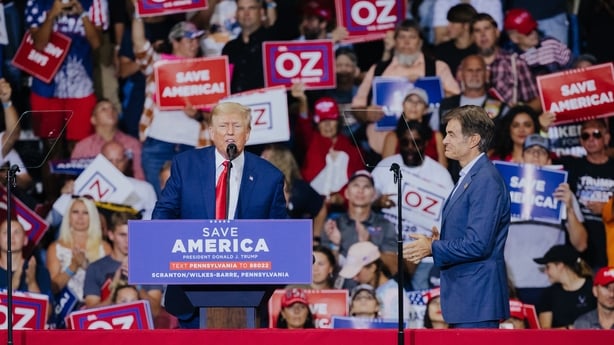
It’s a two-edged sword: celebrity is always useful in elections where candidates have to struggle for name recognition. Backing from the former president also locks in a solid base, but does require some adjustment to retain their loyalty.
It is needed because of suspicion about a well-heeled out of state TV star sweeping into the state. (Oz’s wife, Lisa and other members of her family have invested in Dunbrody House Hotel in Wexford, according to campaign filings on his financial interests).
The Democratic Party thought it had a shot at convincing enough moderate Republicans to switch parties, especially suburban women voters who are concerned about abortion and the policy stance of some leading Republicans, in the wake of the Dobbs ruling by the Supreme Court.
The Democrats chose John Fetterman, a strongly performing local politician, for the task. Fetterman, a former mayor and current lieutenant governor of the state, had abandoned his family insurance business in favour of social work in deprived communities.
His trademark black hoodies and shorts, bald head and goatee beard, and prominent tattoos marked him out in the political field, for he looks nothing like the typical US Senator. At 2.2 metres tall and weighing 180kg, he cuts an imposing figure.
But then he suffered a stroke, causing damage to his hearing and faces a slow path to recovery, full of the difficult adjustments recovering stroke patients must endure.
He was in hospital as the results of his primary election win came through. His first public appearance on the campaign trail was not until August. His first TV interview came last week, in a sitdown with NBC, in which Fetterman used a closed captioning device, reading the reporter’s questions from a screen as she spoke them, before answering.
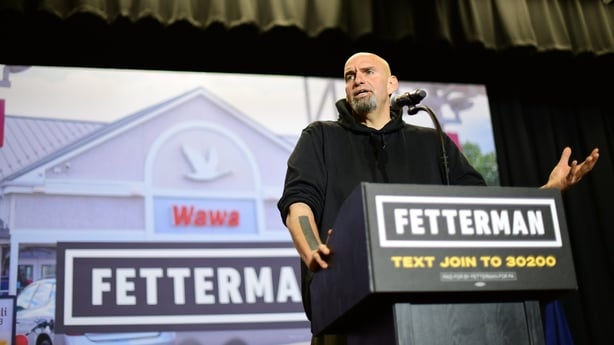
Predictably, his health becoming a campaign issue: was he fit enough to continue the campaign? Was he fit for office? Had he hidden any health issues from the electorate? Oz himself said little, but his campaign staff raised the questions. He posted adverts of himself out jogging – nothing to be said.
As Fetterman’s health became a more prominent issue in the campaign, his poll lead, which had been in double digits in August, fell to less than six points. Oz is making ground. The race is tightening.
But what about after that? What about the next administration? Unusually, the state level elections are attracting much more attention this time around, because of their potential impact on the outcome of the 2024 presidential election.
That’s because key officials such as governors and secretaries of state, who are responsible for organising, supervising and certifying the elections in their states, are up for election in a number of key battleground states that were crucial to delivering Joe Biden’s election victory over Donald Trump in 2020.
Of course, that election outcome was not accepted by Donald Trump, who contested it through the courts, and through an effort to overturn election outcomes in a few key states.
This included an effort to change the electoral college votes in some states prior to the counting of those votes on 6 January last year –the day a mob smashed its way into the US Congress to try to stop the final phase in the election.
The election outcome has also been disputed by a coterie of so-called "election deniers" - people who either deny flat out that Joe Biden won the presidency, or question the integrity of the electoral system in their own state, or of the electoral machines used in many US states.
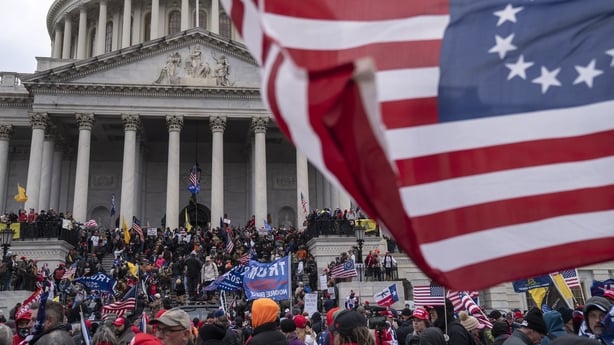
Many of them question the legitimacy of postal ballots, which have tended to be more heavily used by Democrat voters, and which helped tip a few key states Joe Biden’s way in 2020.
The January 6 committee has heard evidence from a number of Trump administration officials, placed in office by Donald Trump himself, who investigated claims of electoral fraud or irregularity.
Notable among them was former attorney general Bill Barr, who headed a US Justice Department investigation of electoral system claim, and found no significant irregularities that called the overall result into question.
But still the issue haunts these elections, both in the House and the Senate elections, but more particularly in the battles for state level offices. And because each state is in charge of their own electoral process – there is no federal voting and counting system – whoever ends up in charge of those state voting systems is a vital issue in this year’s mid-terms.
In Pennsylvania, an election denier is the Republican candidate for governor. Doug Mastriano – a retired army colonel – was also present at the rally that culminated with the storming of the US Capitol. There is no evidence that Mastriano himself entered the building. He had used campaign funds to charter buses to bring Trump supporters to Washington that day.
Previously, he had become well-known in Pennsylvania for his opposition to measures introduced to control the Covid-19 pandemic, notably mask-wearing, social distancing and mandatory vaccination policies. He had organised the first anti-Covid laws rally on the steps of the State Capitol in Harrisburg in April 2020, just weeks after the first restrictions were brought in.
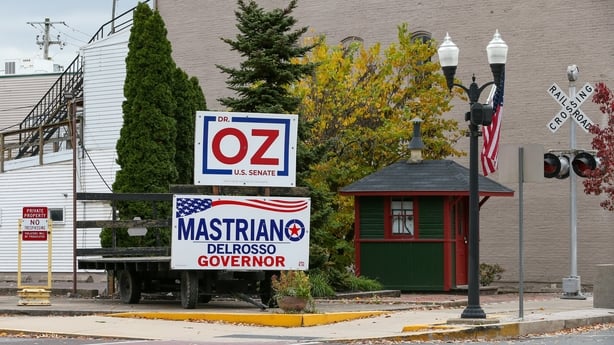
Mastriano won through an eight-strong Republican primary race relatively easily. The base liked what he was telling them. But since then his campaign has baffled observers – rarely holding public events, not admitting news media, not speaking to reporters.
He has a war chest of $5m, but his Democrat challenger has ten times that sum, and is spending heavily on TV advertising that Mastriano has no chance of matching.
Josh Shapiro, the Democrat who is currently the state's attorney general, describes himself as a progressive, and is active in promoting and defending trade unions. Yet he has been backed by well over $50m, half it from donors outside the state, mostly in California and New York. That is the biggest indication of how concerned the Democratic Party is over key state appointments falling into the hands of election deniers.
Again, the polls give Shapiro a healthy lead over Mastriano. But the polling companies admit they have a persistent problem with Trump supporters not engaging with polling, or not revealing their real allegiances.
They are not capturing the true extent of support for the so-called MAGA republicans, and this may be skewing current polling estimates in favour of the Democrats.
So tight contests may be tighter than they appear.
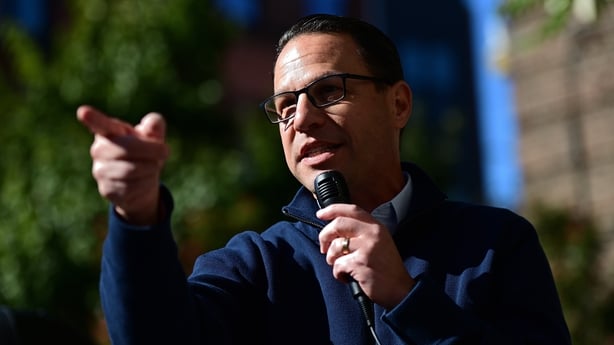
Worth bearing in mind also is the power of the Governor of Pennsylvania to effectively appoint a secretary of state of their own choosing. The next secretary of State will be in charge of organising the 2024 presidential election in Pennsylvania.
And deciding the rules for admitting and counting votes. And of certifying the result, and allocating the electoral college votes, and sending them to Washington for formal counting. The very process that was under way on Capitol Hill on 6 January, when a mob seized control of the building.
According to a New York Times analysis of candidates, about 65% of Republican candidates for state governors have expressed misgivings about the result of the 2020 Presidential election.
The newspaper claims almost half of all the Republican candidates running for congress or state level posts in this election have expressed doubts about the 2020 election result this year, in many cases in the last few months.
As a reminder, Joe Biden won seven million more votes than Donald Trump, and won 74 more electors in the electoral college, including the 20 from Pennsylvania.





